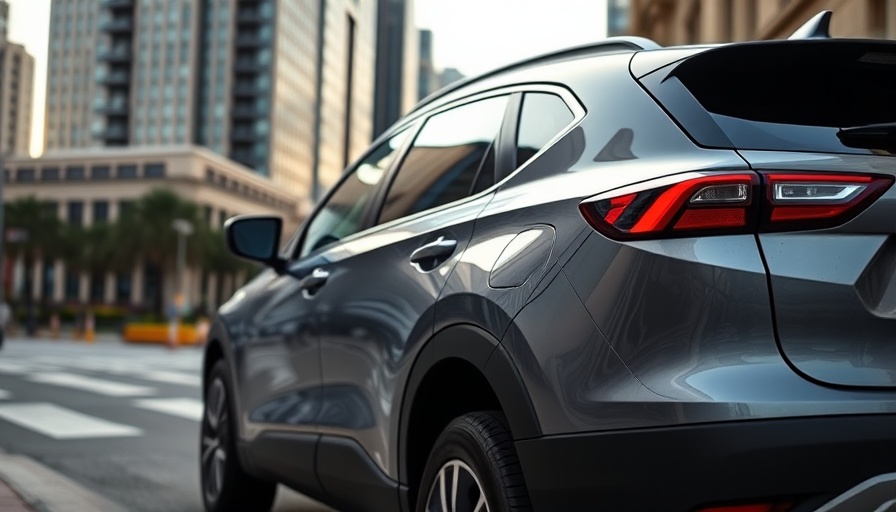
Nissan's Bold Shift: From Leaf to Crossover
Nissan is kicking off a bold transformation with the third-generation Leaf, now redesigned as a crossover. This pivot is not merely a cosmetic change; it signifies Nissan's intention to regain its spot in the electric vehicle (EV) landscape—a space it once dominated with the original Leaf in 2009. As Tesla continues to captivate the market, Nissan's transition to an SUV format allows it to align with current consumer preferences, which favor larger vehicles.
Adventure Calls: The Future of Nissan's EV Lineup
Nissan is not stopping at just the new Leaf. The company is setting the stage for an "adventure-focused" electric SUV, aiming for a 2027 debut. While specifics about this model are still scarce, the strategy suggests a keen understanding of market demands. By focusing on adventure, Nissan is likely tapping into the outdoor and active lifestyle demographic, a smart move that could attract a wider audience.
Technological Innovations Elevate the Driving Experience
The updated Leaf will incorporate enhancements such as better aerodynamics and range improvement, critical factors for any EV's competitiveness. Interestingly, this next-gen Leaf will also feature compatibility with Tesla’s Supercharger network, a strategic advantage that aligns Nissan with leading industry standards. This compatibility is expected to ease consumer anxiety regarding charging, which has been a significant hurdle for potential EV buyers.
Nissan's Manufacturing Strategy: Keeping It Local
Looking ahead, Nissan plans to build its new adventure SUV in Canton, Mississippi, signaling a commitment to local manufacturing. This approach not only supports the U.S. economy but also reinforces the brand's dedication to producing vehicles tailored to American consumers. U.S.-manufactured batteries will power these models, which could enhance consumer trust in the sustainability and reliability of their vehicles.
The Competitive EV Market: What Lies Ahead?
With competitors like Tesla and growing brands entering the EV space, Nissan has to meet the challenge head-on. The company’s strategic shifts hint at a more expansive vision for its electric initiatives, aiming to appeal to both traditional car buyers and environmentally-conscious consumers. As Nissan carves its niche, its ability to innovate while maintaining affordability will be pivotal.
Connecting to the Consumer: The Role of Emotional Appeal
Beyond the technical specifications, Nissan's messaging about their new models, which fosters an adventurous spirit, is key to connecting with consumers. This emotional appeal can resonate well with buyers seeking vehicles that reflect their values and aspirations. With adventure at the forefront, Nissan aims to reposition itself not just as an automaker, but as part of a lifestyle.
Conclusion: Nissan's Next Steps
Nissan’s move to electrify its lineup with the new crossover Leaf and an upcoming adventure SUV is a clear signal of its commitment to adapt and thrive in the evolving automotive landscape. As it prepares to release these models, it aims to regain its stature in the EV market while also meeting the diverse needs of modern consumers. With clever strategies and local production, Nissan is on track to become a formidable contender in the growing world of electric vehicles.
 Add Row
Add Row  Add
Add 




 Add Row
Add Row  Add
Add 

Write A Comment